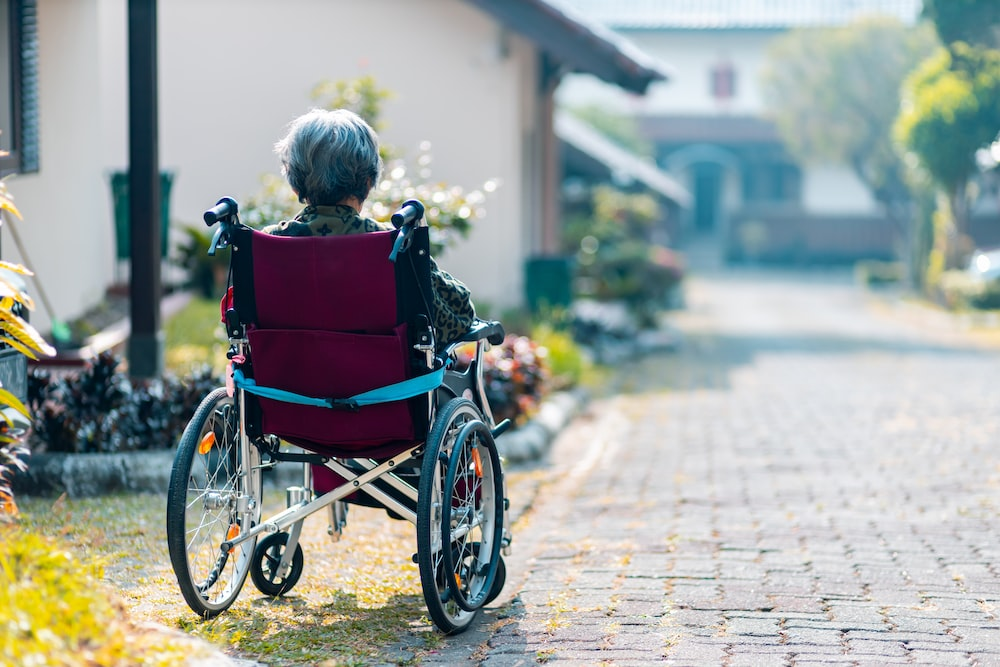Statistical reports show that around 5.8 million individuals in the US are living with some type of dementia and Alzheimer’s disease. Dementia is a type of neurodegenerative disease that can have a wide range of symptoms, forms, and causes. This disease causes a gradual decline in cognitive function and can affect an individual’s memory, language, judgment, thinking, and behavior.
When it comes to dementia care for a loved one, fostering effective communication and creating a safe environment is very important. Read on to learn how to provide personal care for a loved one with dementia.
Understanding Dementia

Before we begin to understand the ways to provide appropriate dementia care, it’s good to have a deeper insight into what dementia really is.
Dementia is a term that describes neurological disorders that affect daily functioning and cognitive function. This neurological disorder can lead to several challenges for families and individuals living with the disease since it can disrupt their everyday lives.
Here are some different types of dementia.
Frontotemporal Dementia (FTD)
Frontotemporal dementia can have a major impact on the frontal and temporal brain lobes and leads to sudden behavioral, personality, and language changes.
Vascular Dementia
Vascular dementia is caused by impaired blood flow to the brain. This dementia can result in sudden cognitive decline and can even lead to heart disease or stroke. This type of dementia also affects the individual’s memory and behavior.
Lewy Body Dementia (LBD)
Lewy body dementia occurs when an abnormal form of a protein called Lewy Bodies starts to accumulate in the brain. This form of dementia can have similar symptoms to Alzheimer’s disease and Parkinson’s disease. Some of the symptoms include motor impairments, visual hallucinations, cognitive decline, and attention fluctuations.
Getting a proper diagnosis for dementia is very important to get the most suitable treatment and caregiving plan.
What Are the Signs and Symptoms of Dementia?

Here are some of the early common signs and symptoms of dementia.
- Being repetitive: An individual with dementia may repeat certain things and ask the same thing repetitively. They may even tell the same story multiple times and perform the same tasks.
- Hard time accepting changes: People with dementia experience sudden personality and behavioral changes, and they may not react well to changes in their environment.
- Unable to find the right words: Dementia can make it difficult for a person to think of the right words to use in a conversation.
- Changes in short-term memory: People with dementia may remember events that happened 15 years ago but will have difficulty remembering what they ate for lunch.
- Mood changes: It’s common for dementia patients to have mood changes like frustration, anger, and depression.
- Sense of direction: They may also forget familiar driving routes.
- Difficulty with everyday tasks: People with dementia can feel easily overwhelmed when performing everyday tasks since they can have difficulty recalling how to perform tasks that they knew how to do for several years.
How to Care For a Dementia Patient
Let’s explore ways to care for an individual with dementia.
Effective Communication is Key
Firstly, it’s essential to have effective communication with a dementia patient. As the disease progresses, verbal communication might become more challenging.
Simple and clear language, accompanied by non-verbal cues such as gestures and facial expressions, can aid in understanding. Just remember to be very patient and allow time for responses while maintaining a calm and reassuring tone.
Listening attentively and validating their feelings can enhance communication and foster a sense of connection.
Creating a Safe and Dementia-Friendly Environment
One of the things to keep in mind when looking after a dementia patient is to create a safe and comfortable space where your loved ones can relax and perform their daily tasks with ease.
Simple modifications can make a significant difference. Ensure good lighting to reduce confusion, remove unnecessary clutter to minimize distractions, and install handrails or grab bars to prevent falls. Consider labeling common items and using contrasting colors to assist in recognizing and navigating spaces. Consider implementing a daily routine to provide structure, as familiarity can be comforting for those with dementia.
Promoting Independence
One thing many caregivers forget is that senior adults need independence. While the progressive nature of dementia may hinder their independence, they still need to feel empowered to feel in control.
Break down tasks into smaller, manageable steps and encourage self-care as much as possible. Foster a sense of purpose by involving them in light household activities or hobbies they once enjoyed. This not only provides a sense of accomplishment but also helps maintain cognitive function to some extent.
Learn to Manage Challenging Behaviors

Dementia can lead to several personality and behavioral changes that can be hard to manage. Dementia patients can get easily agitated and aggressive, and they require effective behavioral management.
Understanding the triggers behind these behaviors is important. Keep a log to identify patterns and potential triggers. Redirecting attention to a calming activity, providing a comforting item, or engaging in gentle physical activities can be effective strategies. It’s crucial to remain patient and adaptable, adjusting your approach to the individual’s needs as they evolve.
Seeking Support and Respite
Caring for a loved one with dementia is a demanding role, and it’s essential to recognize when support is needed.
This is where our experienced and professional caregivers can help.
Our team of caregiving professionals specializes in dementia care. At King’s Grace Homecare, we offer the most comprehensive and professional home care services to help your aging loved ones live a better quality of life.
With over a decade of experience in providing caregiving services and regular training, our caregivers know how to ensure your loved one’s best health.
We offer a wide range of caregiving services, including traumatic brain injury care, structured family caregiving, professional home caregiving, 24-hour nursing care at home, and more.
Reach out to us today to learn more about our caregiver agency and personal care services for the elderly.


